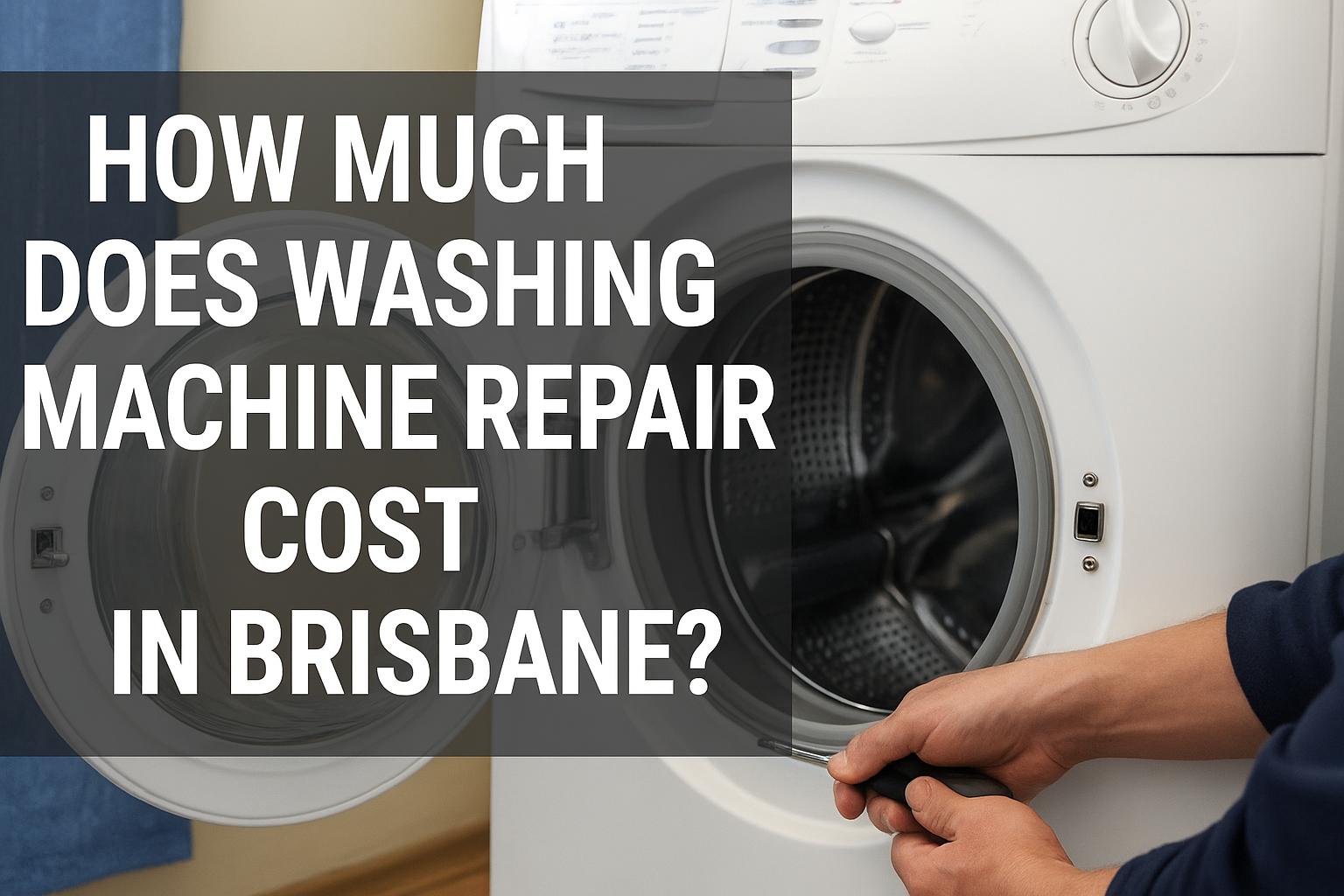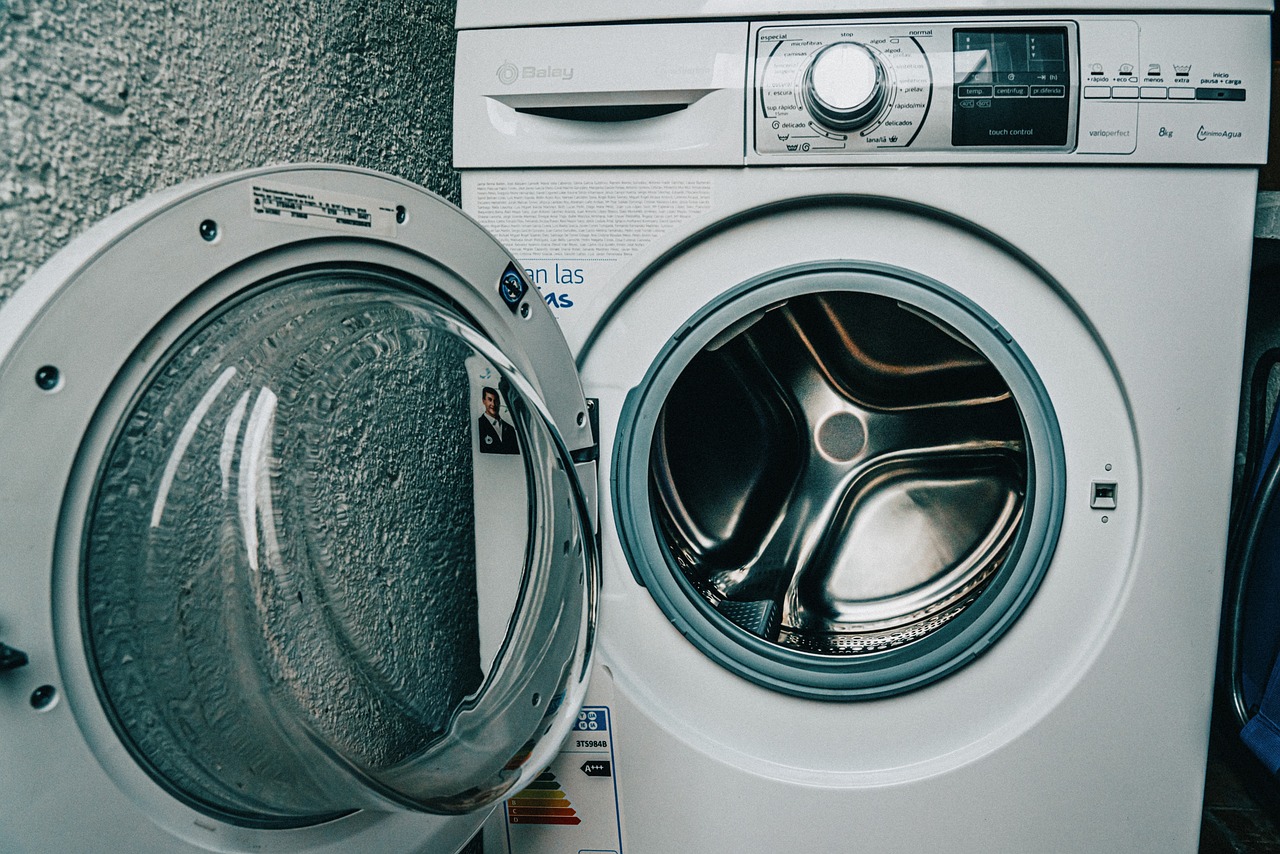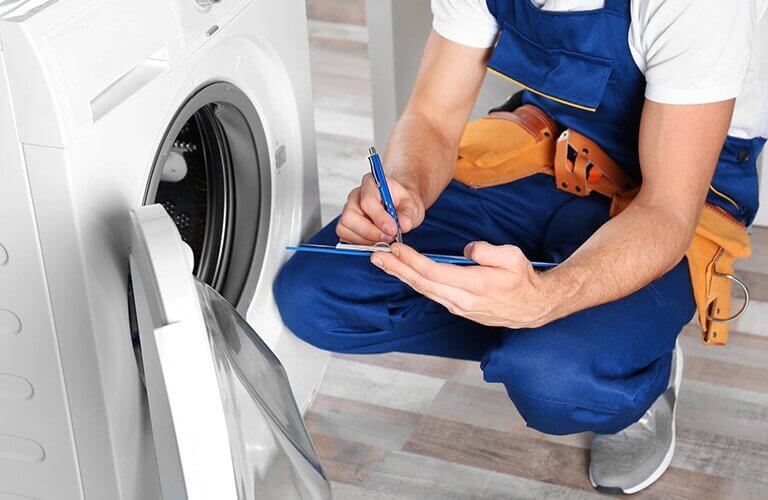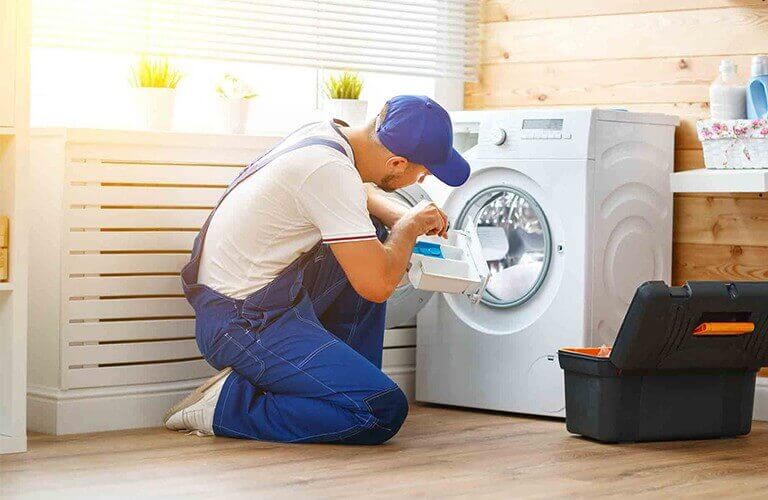Choosing a front-load washing machine represents a significant investment for Australian households. With prices ranging from $800 to over $3,000 and the expectation that these appliances will perform reliably for 10-15 years, making an informed decision matters.
Front-loaders are the preferred choice for Australians due to their efficient water and energy use, superior cleaning performance, and ability to accommodate larger loads in a compact design. All front-loaders are not the same. Different brands and models offer different features, performance, reliability, and operating costs.
This post helps you understand what separates excellent front-loaders from mediocre ones, ultimately helping Australian families select machines that match their specific needs, budget, and household demands.
What Makes a Front-Load Washer “Best”
The ideal front-load washing machine balances several key factors rather than excelling in only one area.
Cleaning performance:
The main purpose of front loan washer is to clean your clothes. The high-performing models are excellent at removing stubborn stains from a wide variety of fabrics while maintaining a gentle wash cycle to prevent damage. You should prioritise machines offering multiple wash programs, adjustable spin speeds, and precise temperature control.
Energy and water efficiency:
Majority of Australian households prioritise running or operating costs. You can substantially saveon the appliances for a lifetime, if you decide to purchase front loaders with 5 stars or above for energy and 4+ stars for water.
Capacity suited to household size:
Select a drum capacity that aligns perfectly with your household size and needs. A drum capacity of 7-8kg is suitable and perfectly manageable for singles or couples, while a family with 3-4 members can easily adjust with 8-10kg. A model of 10-12kg is recommended for larger households or for washing bulky items like bedding.
Build quality and reliability:
Premium brands use better components, more durable drums, superior bearings, and robust motors. These machines withstand years of regular use without frequent repairs. Checking warranty length provides clues about manufacturer’s confidence in reliability.
Noise levels:
Front loaders operate more quietly than older models, but differences remain. Machines with advanced suspension systems and direct drive motors produce minimal noise, important for open-plan homes or laundries near living areas.
Feature set:
Modern conveniences like quick wash cycles, steam cleaning, allergen removal, smartphone connectivity, and auto-dosing systems add value when they match household needs. Unused features don’t justify higher prices.
Top Front-Load Washing Machine Brands in Australia
Several brands deliver quality front-load washers suited to Australian conditions and preferences.
Bosch
Bosch front loaders are renowned for exceptional build quality and longevity. German engineering means machines that can exceed 15 years of service with proper maintenance.
Standout features: Bosch’s ActiveWater technology adjusts water usage based on load size, maximising efficiency. Their VarioDrum design features specialised paddles that create gentle and effective washing action. Anti-vibration design keeps noise to a minimum even during high-spin cycles.
Best for: Households prioritising reliability and willing to invest upfront for long-term value. Bosch machines cost initially but deliver superior durability.
Popular models: The Series 6 and Series 8 ranges offer excellent performance across various price points, with 8-10kg capacities ideal for Australian families.
Miele
Miele represents the premium end of front-load washers, with prices reflecting their exceptional quality and unique features.
Standout features: Miele’s patented Honeycomb drum design creates a thin water film between drum and laundry, treating fabrics gently while cleaning thoroughly. Their machines feature 20-year design life testing and exceptional build quality. The TwinDos auto-dosing system precisely dispenses detergent, eliminating guesswork and waste.
Best for: Households wanting the absolute best regardless of budget, or those with expensive wardrobes requiring gentle care. Miele’s reliability means fewer service calls over the machine’s extended lifespan.
Popular models: The W1 series offers various capacities, with even entry-level models delivering superior performance.
LG
LG combines innovative technology with competitive pricing, making advanced features accessible to more Australian households.
Standout features: LG’s AI DD (Artificial Intelligence Direct Drive) technology detects fabric types and adjusts wash motions. Their TurboWash technology reduces cycle times without compromising cleaning. Six Motion Direct Drive creates multiple drum movements for thorough and gentle cleaning.
Best for: Tech-savvy households wanting smart features and strong performance at mid-range prices. LG offers excellent value with solid reliability.
Popular models: The AI DD series and WashTower models are available in capacities of 8-12kg.
Samsung
Samsung front loaders incorporate innovative features and attractive designs at competitive price points.
Standout features: Samsung’s AddWash door allows adding forgotten items mid-cycle without stopping the wash. Their EcoBubble technology activates detergent more effectively, improving cleaning while using cooler water. QuickDrive technology reduces wash times by up to 50%.
Best for: Families wanting modern features, fast cycles, and good performance without premium pricing. Samsung offers strong value across its range.
Popular models: The AddWash series and QuickDrive models provide flexibility and speed, with 8-10kg capacities common.
Electrolux
This Swedish brand delivers reliable performance with features tailored to practical household needs.
Standout features: Electrolux UltraMix pre-mixes detergent before it enters the drum, ensuring thorough distribution and better stain removal. Their Vapour Care function refreshes clothes and reduces wrinkles. Intuitive controls make operation straightforward.
Best for: Households wanting dependable performance with useful features at reasonable prices. Electrolux offers solid middle-ground options.
Popular models: The UltraMix range delivers consistent performance across 7.5-10kg capacities.
Fisher & Paykel
This New Zealand brand understands the Australasian market and its conditions and preferences, designing machines for local markets.
Standout features: Fisher & Paykel’s SmartDrive technology uses fewer moving parts, reducing mechanical failure risks. Their FabricSmart technology adjusts settings based on load type. Quiet operation suits Australian home layouts.
Best for: Households preferring brands familiar with local conditions and wanting straightforward, reliable performance. Strong local service network adds peace of mind.
Popular models: The WashSmart series offers good value with 8-10kg capacities common.
Key Features Worth Paying For
Certain features deliver genuine value while others amount to marketing gimmicks used after initial novelty wears off.
Essential Features
Variable spin speeds: Allows optimisation for different fabric types. Delicates need gentle 800rpm spins while towels benefit from 1400rpm+ for faster drying.
Multiple temperature options: Cold, warm, and hot settings provide flexibility for various stain types and fabric care requirements.
Quick wash cycles: 15-30 minute cycles for lightly soiled items save time and energy for daily washing needs.
Delay start: Programs washing to finish when convenient, useful for taking advantage of off-peak electricity rates or ensuring clothes don’t sit damp while at work.
Drum clean cycles: Maintains machine hygiene by cleaning the drum and door seal, preventing mould and odour development.
Premium Features Worth Considering
Steam functions: Effectively removes allergens and refreshes clothes without full washing. Valuable for families with allergies or asthma.
Auto-dosing systems: Precisely dispense detergent based on load size, preventing waste and ensuring optimal cleaning. Save money over time despite a higher initial machine cost.
Smart connectivity: Smartphone control allows monitoring cycles remotely and downloading specialised wash programs. Genuinely useful for busy households, though not essential.
Inverter/Direct Drive motors: Fewer moving parts mean quieter operation, better energy efficiency, and improved reliability. Worth the premium for machines used frequently.
Features to Avoid or Question
Excessive wash programs: Machines advertising 20+ programs offer redundancy. Most households regularly use 4-6 programs. Don’t pay premiums for programs never used.
Complicated interfaces: Overly complex controls frustrate daily use. The best machines balance features with intuitive operation.
Gimmicky additions: Features like internal lighting or music players add cost without improving washing performance. Prioritise functional benefits over novelty.
What to Consider for Australian Conditions
Australia’s climate, water quality, and living situations create specific requirements for washing machines.
Water Efficiency
Many Australian regions face water restrictions or high water costs. Front-loaders use less water than top-loaders, but efficiency varies between models. Machines using under 60 litres per 8kg load deliver meaningful savings over appliances using 70-80+ litres.
Check the Water Efficiency Labelling and Standards (WELS) rating – 4 stars or higher indicates excellent efficiency.
Energy Costs
Queensland and NSW have high electricity costs. Energy-efficient models with 5+ star ratings reduce running costs over the machine’s lifespan. Calculate potential savings using your electricity rate; the difference between a 4-star and 6-star rated machine can exceed $100 annually.
Space Constraints
Australian laundries are compact. Front-loaders fit smaller spaces better than top loaders, but dimensions matter. Measure available space carefully, accounting for door swing and ventilation requirements. Stackable models suit tight spaces when paired with compatible dryers.
Hard Water Areas
Regions with hard water, like inland Queensland, South Australia, and Western Australia, benefit from machines with limescale prevention features or those compatible with water softeners. Hard water reduces detergent effectiveness and can damage machine components over time.
Sizing the Right Capacity
Matching drum capacity to household needs prevents wasting money on oversized machines or struggling with undersized ones.
7-8kg capacity: Suitable for 1-2 people with moderate washing needs. Handles daily clothing, towels, and small bedding items.
8-10kg capacity: Ideal for families of 3-4 people. Accommodates larger loads, including king single doonas and multiple towels per load.
10-12kg capacity: Best for families of 5+ or households washing bulky items regularly. Handles king-size bedding and reduces wash frequency for large families.
Oversizing wastes water and energy when running partial loads regularly. Undersizing forces multiple daily loads and accelerates machine wear.
Cost Considerations and Value
Front-load washing machines span vast price ranges, with different value propositions at each level.
Budget range ($800-$1,200): Entry-level models from reputable brands deliver adequate performance for basic needs. Expect fewer features, simpler controls, and shorter lifespans. Suitable for renters, singles, or tight budgets.
Mid-range ($1,200-$2,000): Sweet spot for most Australian households. Quality brands offer strong reliability, good efficiency, useful features, and reasonable longevity. Best value proposition balancing performance and cost.
Premium range ($2,000-$3,500+): Top-tier models from Miele, high-end Bosch, and premium LG/Samsung ranges. Superior build quality, advanced features, exceptional efficiency, and extended lifespans. Higher initial investment returns value through longevity and lower running costs.
Maintenance and Longevity
Even the best front loaders require proper maintenance to reach their potential lifespan.
Regular cleaning: Wipe door seals after use to prevent mould. Run drum clean cycles monthly. Leave the door ajar between uses for air circulation.
Appropriate detergent: Use only front loader-specific detergent in correct quantities. Excessive detergent creates residue that damages components and affects cleaning performance.
Professional servicing: Annual maintenance inspections catch developing problems early, preventing expensive repairs or premature replacement.
Conclusion
The best front-load washing machine depends on specific household circumstances rather than a single universal choice.
For most Australian families, mid-range models from Bosch, LG, or Electrolux in 8-10kg capacities deliver the best balance of performance, reliability, and value. Those prioritising absolute longevity and willing to invest upfront benefit from Miele or high-end Bosch models. Budget-conscious households or renters find adequate performance from entry-level models to established brands.
Focus on energy and water efficiency, appropriate capacity, and features needed rather than impressive specification sheets. Check warranty terms; longer warranties indicate manufacturer confidence in reliability.
When purchasing, consider installation requirements, delivery timeframes, and after-sales service availability. Even the best machine provides little value if service and parts aren’t readily available when needed.
Need professional advice on selecting the right front-load washer for your household or professional installation services?
Ideal Refrigeration & Appliance Services helps Brisbane families choose and install quality washing machines suited to their specific needs. Our technicians also provide maintenance services to keep machines running efficiently for years. Call 0428 149 923 for personalised recommendations and professional appliance support.
Frequently Asked Questions
How long should a front-load washing machine last in Australia?
Quality front-load washers last 10-15 years with proper maintenance. Premium brands like Miele and Bosch exceed 15 years, while mid-range brands deliver 10-12 years of reliable service.
Are front-load washers better than top-loaders for Australian homes?
Yes, front-loaders use 40-60% less water, are more energy-efficient, and clean more effectively, which is important given Australia’s water restrictions and high electricity costs. They’re ideal for most households unless mobility issues make top-loading easier.
What capacity front-load washer do I need for a family of four?
A family of four needs an 8-10kg capacity. Choose 8kg for regular loads or 10kg if washing bulky items like doonas frequently.
Which brand is most reliable for front-load washers in Australia?
Bosch and Miele rank highest for reliability. LG and Electrolux offer strong reliability at mid-range prices. From a technician’s perspective, Bosch machines require fewer service calls and perform exceptionally well in Australian conditions.
How much does it cost to run a front-load washing machine in Australia?
An energy-efficient 8kg front-loader costs approximately $40-$70 annually in electricity and $30-$50 in water for average use (4-5 loads per week). Check the Energy Rating Label for specific running costs.
Do front-load washers really get mouldy, and how do I prevent it?
Mould is preventable with proper care. Wipe the door seal after use, leave the door ajar between washes, run monthly drum clean cycles, and use appropriate detergent amounts.
What’s the difference between a $1,000 and a $3,000 front load washer?
Premium machines offer superior build quality, longer lifespans (15-20 years vs 8-10 years), better efficiency, quieter operation, and advanced features. Mid-range models ($1,200-$1,800) provide the best value for most households.
Can I install a front-load washer myself, or do I need a professional?
While DIY installation is possible, professional installation ($100-$150) ensures proper levelling, secure connections, and warranty compliance. Improper installation can cause premature wear and water damage.
Are smart/WiFi-connected washing machines worth it?
Smart features benefit busy households through remote monitoring and specialty programs, but aren’t essential for cleaning performance. Worth considering if you will use them regularly.
What warranty should I expect on a front-load washing machine?
Standard warranties range from 2 to 5 years for parts and labour. Premium brands offer longer coverage, with some components (like motors) warranted for up to 10 years. Always register products to activate full warranty coverage.






